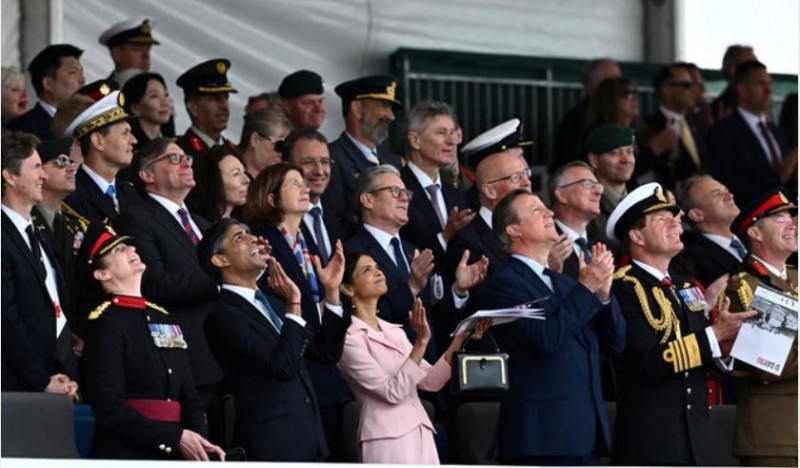
British Prime Minister Rishi Sunak's decision to leave D-Day commemorations in northern France early has sparked controversy, potentially impacting the Conservative Party's upcoming general election campaign. Sunak, who apologized for missing the final ceremony on Omaha Beach in Normandy, faced criticism for his absence alongside other world leaders like President Joe Biden, French President Emmanuel Macron, German Chancellor Olaf Scholz, and Ukrainian leader Volodymyr Zelensky.
Labour Party leader Keir Starmer, who remained for the entire event, remarked that Sunak must answer for his choice to skip the D-Day ceremony. With opinion polls showing Labour with a significant lead ahead of the July 4 election, Sunak's misstep has raised concerns about further erosion of Conservative support in the coming days.
Gaffes are not uncommon in British elections and have often influenced campaign outcomes over the decades. Here are some memorable ones:
1974: Ted Heath's Winter Election
Facing economic hardships due to skyrocketing oil prices and a miner's strike, Conservative Prime Minister Ted Heath called for an early general election in February 1974. His decision to seek a mandate to curb trade union power backfired, as Labour's Harold Wilson returned as prime minister.
1983: Margaret Thatcher's Landslide Victory
Following the Falklands War, Conservative Prime Minister Margaret Thatcher called for a general election in June 1983. Labour's radical manifesto advocating higher taxes, nuclear disarmament, and European Economic Community withdrawal contributed to Thatcher's landslide victory.
1992: Neil Kinnock's Sheffield Rally
Labour's Neil Kinnock, aiming to move the party back to the center ground, held a rally in Sheffield before the April 1992 election. Kinnock's perceived overconfidence, marked by shouting "We're alright!" or "Well alright," is thought to have contributed to Labour's defeat.
2001: John Prescott's Egg Incident
In the June 2001 election, Labour faced little opposition. However, an incident where John Prescott, Blair's deputy, punched an egg-throwing man threatened to derail Labour's campaign. Blair defused the situation with humor at a subsequent press conference.
2010: Gordon Brown's "Bigoted Woman" Comment
Labour's Gordon Brown, facing criticism over the economy and immigration policies, called a woman "bigoted" during the 2010 campaign. The incident dominated headlines and undermined Labour's chances, though the Conservatives failed to secure a majority.
2017: Theresa May's "Dementia Tax"
Prime Minister Theresa May called an early election in June 2017 to strengthen her position ahead of Brexit negotiations. Her proposal to change how retirees pay for long-term care, labeled the "dementia tax," backfired and contributed to the loss of her majority.
Each of these incidents illustrates how election campaigns in the UK can be derailed by unexpected events and gaffes, influencing voter perceptions and election outcomes.
Top Events Today: Biden and Macron to Strengthen Ties in Paris Meetin
France to Equip Ukraine with Mirage-2000 Jets and Train Pilots, Says Macro
Zelensky Aims for Peace Summit to Accelerate End to Ukraine War, How It Could Shape Europe